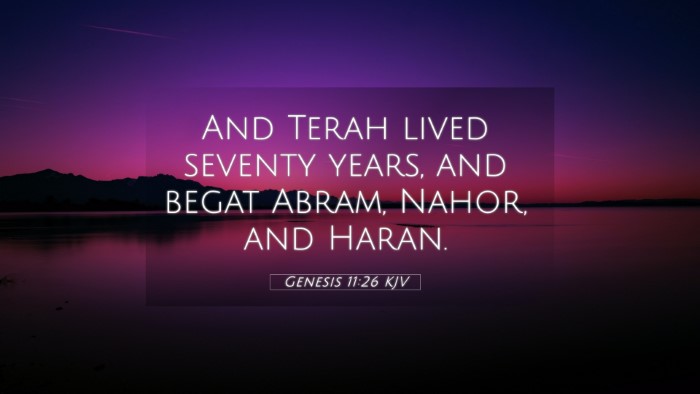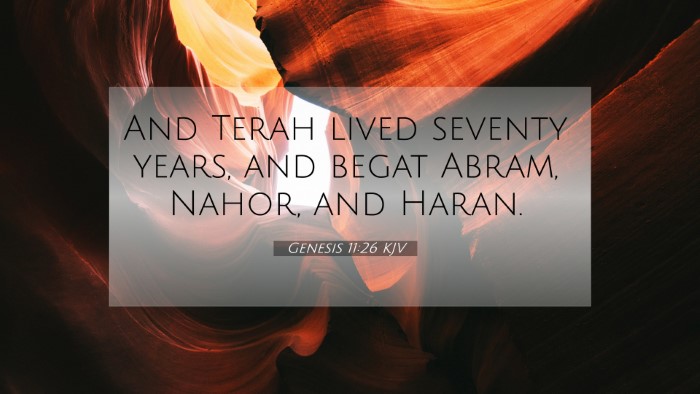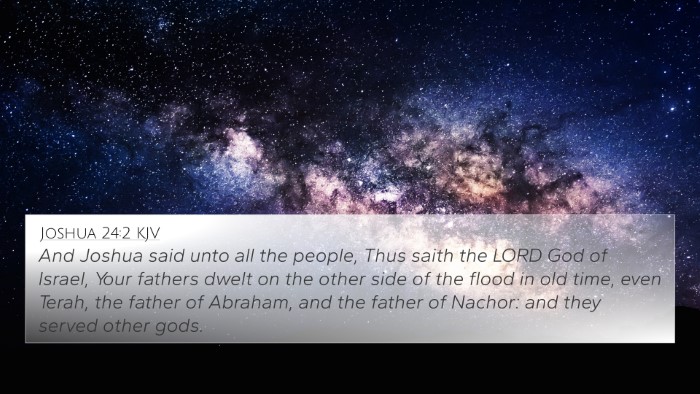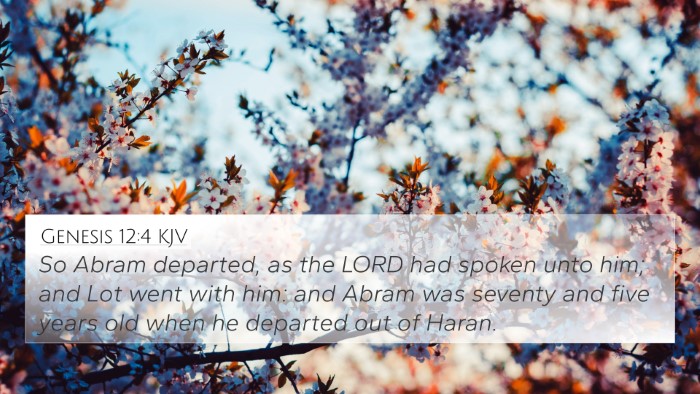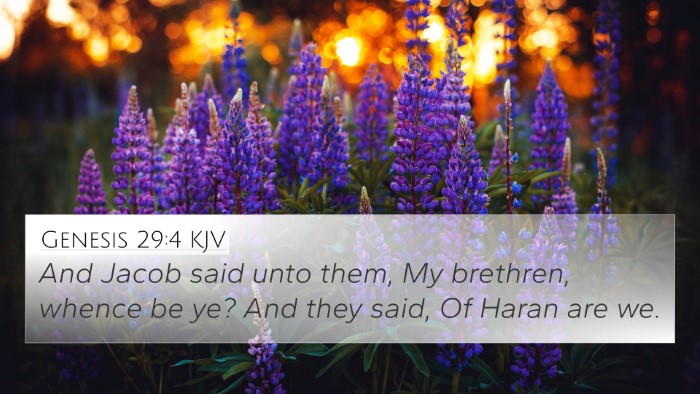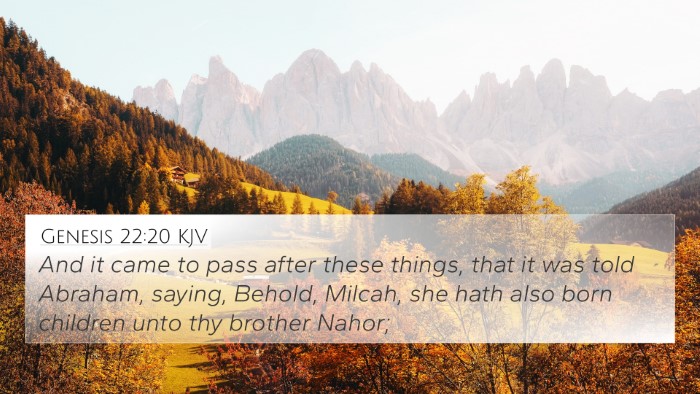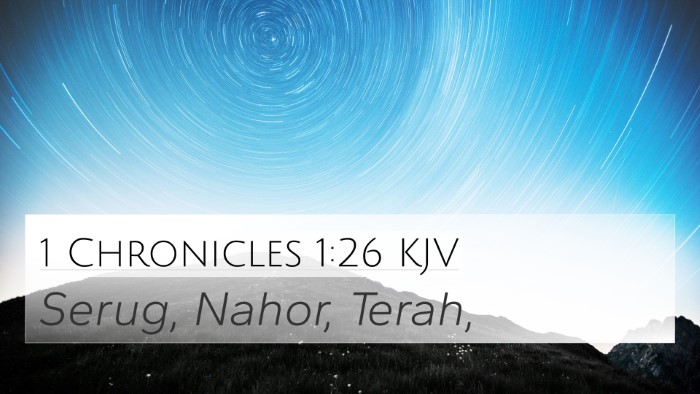Genesis 11:26 - Overview and Interpretation
Genesis 11:26 reads: "And Terah lived seventy years and begat Abram, Nahor, and Haran." This verse marks a significant moment in Biblical genealogy, focusing on Terah, who is the father of three pivotal figures: Abram (later known as Abraham), Nahor, and Haran.
Meaning of the Verse
The verse emphasizes the age of Terah at the birth of his sons and begins the story of Abram, who is a central character in the narrative of the Bible. As such, this verse can be seen as the precursor to the stories of faith, covenant, and the establishment of the Hebrew nation.
Insights from Commentaries
-
Matthew Henry's Commentary:
Henry notes that this verse illustrates the importance of lineage in the Old Testament. He highlights the concept of God choosing a family line through which He would establish His covenant and blessings to humanity. The mention of these names sets the stage for Abram’s pivotal role in biblical history.
-
Albert Barnes' Notes:
Barnes discusses the significance of Terah living to the age of seventy and the implications of fathering his sons at that age. He emphasizes the ancestral line that connects with God’s promise to Abraham, which is critical for understanding God’s unfolding plan through generations.
-
Adam Clarke's Commentary:
Clarke comments on the names presented in the verse, especially emphasizing Abram, who would later become the father of many nations. He also reflects on the idea that Terah's lineage would lead to the establishment of a significant covenant between God and His people.
Cross-References for Genesis 11:26
Understanding Genesis 11:26 can be enriched by cross-referencing with the following scriptures:
- Genesis 12:1-4: God’s call to Abram, indicating a significant shift in Terah's lineage.
- Genesis 17:5: God changes Abram's name to Abraham, emphasizing his role in the covenant.
- Hebrews 11:8-10: The faith of Abram is highlighted, showing the significance of his calling.
- Acts 7:2-4: Stephen recounts the call of Abraham, connecting it to Terah’s lineage.
- Romans 4:1-3: Paul discusses Abraham's faith, anchoring it in Genesis 11:26's context.
- Genesis 10:24: Shows the genealogy leading to Terah, enhancing the understanding of this verse.
- Genesis 11:10-32: Provides additional background on the descendants leading to Terah.
Thematic Connections
Genesis 11:26 illustrates various themes within Scripture, including:
- Divine Purpose: The genealogies in Genesis often show God’s purpose in choosing specific individuals for His plan.
- Faith and Obedience: Abram's call reflects themes of faith that resonate throughout the New Testament.
- Family and Legacy: The significance of lineage and its effect on the unfolding biblical narrative.
- Covenant: The promise made to Abram that has implications for all of Abraham's descendants.
Tools for Cross-Referencing
For those interested in deepening their understanding of Genesis 11:26 and its connections, consider utilizing the following:
- Bible Concordance: Helps locate verses that are thematically linked.
- Bible Cross-Reference Guide: Provides a system for finding related texts within Scripture.
- Cross-Reference Bible Study Tools: For a comprehensive study of interrelated biblical themes.
- Comprehensive Bible Cross-Reference Materials: Offer extensive networks of scriptural connections.
Conclusion
Genesis 11:26 is not just a historical account but a pivotal point in the grand narrative of the Bible. By examining this verse through the lens of various commentaries and utilizing cross-referencing methods, readers can uncover deeper theological meanings and connections within the Scriptures. Engaging in such studies can lead to a richer understanding of God's plan and His people.

